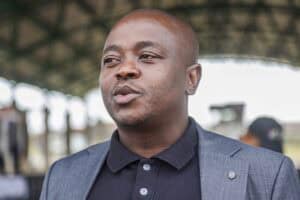Nigerian forces battling Boko Haram jihadists need a change of mindset to overcome an evolving guerrilla threat, US military officials said this week on the sidelines of an African security summit.

Boko Haram’s tactics — from improvised explosive devices to hiding within the local population — necessitate a shift away from conventional strategies, said Lieutenant-Colonel Sean McClure, the US defence attache in Abuja.
“We haven’t necessarily seen that kind of adaptation cycle,” he told AFP. “They’re trying to figure out how to do this.
“How they think in terms of combat, in my opinion, is still thinking of things as conventional warfare.”
As the United States steps up its military presence in Africa, it hopes to share lessons learned in the Middle East with Nigeria and other countries in the Sahel fighting extremist groups.
The Sahel region is host to a string of Islamist groups including Al-Qaeda in the Islamic Maghreb (AQIM) in Mali and Boko Haram in Nigeria and the wider Lake Chad area.
Nigeria, Africa’s most populous country with more than 180 million people, has been fighting Boko Haram since 2009 and has repeatedly claimed to have defeated the group.
Nigeria’s Chief of Army Staff, Lieutenant-General Tukur Buratai, declared on Tuesday there was “no doubt Boko Haram terrorists have been defeated, they don’t have the capacity”.
But persistent attacks against soldiers and civilians, including a brazen new kidnapping of over 100 schoolgirls from the northeastern town of Dapchi on February 19, suggest otherwise.
Meanwhile, the emergence of an IS-allied faction of Boko Haram, whose strategy is to provide an alternative government for people living in the impoverished region, poses a new threat.
“It starts to become a very wicked problem,” McClure said.
– ‘Acrimony’ –
At a military demonstration in Gwagwalada, a town on the outskirts of Abuja, Nigerian special forces performed a battle drill in front of Africa’s senior commanders.
Nigerian special forces stormed a building complex to liberate mock hostages
Soldiers rappelled from helicopters as the midday sun blazed over the savannah, then the infantry moved in to liberate mock hostages from a compound.
But with Borno state, the centre of the Boko Haram conflict nearly twice the size of Belgium, Nigeria cannot rely on soldiers alone.
Members of the Nigerian Armed Forces Sniper Unit took part in the exercises
It also needs the support of the local population.
Buratai told the summit that winning the hearts and minds of people in the northeast has been a “big challenge”. Human intelligence has long been seen as vital to winning the war.
But rights groups have accused Nigeria’s military of killing, torturing and arbitrarily arresting thousands of civilians on suspicion of being Boko Haram members or sympathisers.
That has stoked tensions in a region already wary of the government and made people in hard-to-reach rural areas particularly reluctant to cooperate with the authorities.
“People thought the military action was aggressive to them, so this brought acrimony,” admitted Buratai but he added: “We have done a lot since then and the perception has changed.”
– Human rights concerns –
Similar tensions have been seen elsewhere in Nigeria in relation to separate threats, including over the military handling of protests by pro-Biafran separatists in the southeast.
Protests calling for the release of an imprisoned pro-Iranian Shiite Muslim cleric hung over the Abuja summit, again turning the attention to tactics and possible rights abuses.
Two days of protests on Monday and Tuesday saw at least 115 supporters of Sheikh Ibrahim Zakzaky arrested after running battles with police, who fired tear gas and water cannon.
Zakzaky, the head of the Islamic Movement of Nigeria, has been in custody since December 2015 after troops attacked his supporters in the northern city of Zaria.
More than 300 were killed and buried in a mass grave, according to Amnesty International.
President Muhammadu Buhari’s government has launched a judicial panel to investigate allegations of human rights abuses in the military
President Muhammadu Buhari’s government has launched a judicial panel to investigate allegations of human rights abuses in the military.
But experts warn any reform will take time — if it happens at all.
“It’s very difficult for the Nigerian army to overturn 50-plus years of a bad reputation,” said Yan St-Pierre, a counter-terrorism specialist at the Modern Security Consulting Group in Berlin.
“People are squeezed between a rock and a hard place. Some don’t feel comfortable with the army or Boko Haram,” he said, warning that “if the military doesn’t have popular support basically the insurgents will have it”.






